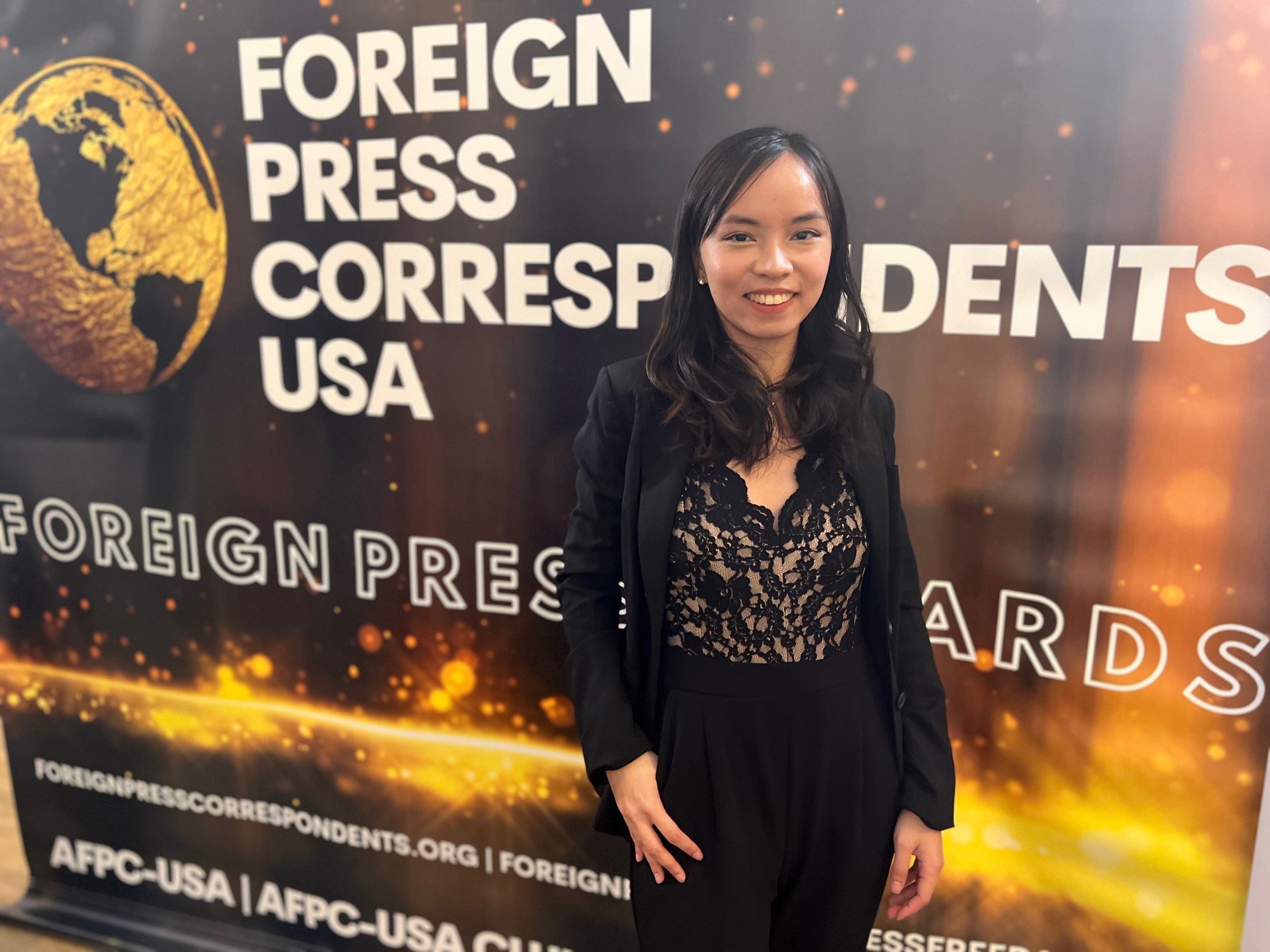"The AFPC Scholarship Award makes my master’s degree possible."

Kaela Malig (Philippines) is an AFPC Scholarship Awardee for 2022.
Kaela Malig is an award-winning multimedia journalist currently taking her master’s degree at Columbia University’s Graduate School of Journalism. She is an AFPC Scholarship Awardee from the Association of Foreign Press Correspondents in the USA for 2022. At the age of 24, she became a four-time Society of Publishers Asia (SOPA) Awards for Editorial Excellence winner. While in the Philippines, she dedicated her time covering social issues, specifically women’s rights and children’s welfare. After interning for Rappler and graduating with awards for her piece on the Philippine drug war’s orphaned children, Malig went on to work with The Washington Post, CNN, and the Philippines’ biggest news organization, GMA Network. During her stay at GMA, Malig worked as an on-air multimedia reporter and published in-depth stories on adoption, child sexual exploitation, and incest rape among others. While studying, she is interested in reporting on New York’s child care system, the litigation of sexual assault, and racial inequality. Malig is also a Brigid O’hara-Forster Scholar.
Kaela Malig from the Philippines received her award from Ed Lewis, Director of Public Policy Communications for Toyota Motor North America, during the Annual Foreign Press Awards Ceremony on December 15, 2022, in New York.
What was the primary reason you chose to pursue your master's studies in the United States as a foreign journalist?
Ever since I was a child, I’ve dreamt of going to Columbia Journalism School. For me, the school offered some of the best mentors and offered one of the best journalism programs in the world, and I couldn’t be any more right. Not only is the United States a leading parameter of journalistic standards, but New York specifically is home to great journalism. All the journalists and writers I look up to have once upon a time worked and studied in New York.
You were recently awarded a scholarship from the Association of Foreign Press Correspondents in the United States. How did you feel about this recognition?
I still can’t believe it until now. I’m just filled with so much honor and gratitude. As an international student hailing from the Philippines, this award doesn’t just make my master’s degree possible, but it became a warm voice that silenced a lot of doubts.
Lately, I’ve been drowning in pressures I myself imposed and this recognition made all my frustrations and late nights working mean something. It’s not just an amazing recognition but it’s a beacon of hope not only for me but also for my other fellow Filipinas who dreamt of going to the United States to pursue journalism. It’s possible.
As a journalist, how do you expect your studies and the support from the Association of Foreign Press Correspondents in the United States to help you advance your career?
The association’s generous scholarship allows me to pursue my master’s degree in journalism at Columbia. It also gives me an amazing opportunity to be surrounded by an incredible network of journalists whose wisdom I’ll keep to heart. These opportunities will deepen my understanding of journalistic excellence and widen my knowledge of reporting techniques, all of which I’ll apply every step of the way.
What made you decide to become a journalist? How do you hope to make an impact in the journalism field of your country of origin?
I always knew from a very young age my heart was in storytelling, and growing up, I saw how gender inequality and gender violence-plagued not only my community but also my entire country. I decided then that I’d become a journalist and try to alleviate other people’s sufferings by shedding light on the truths of their reality. I hope that with the new knowledge I have now, I can further tell stories of Filipinas and the realities they face every day. Their stories need to be heard, and if we could elevate their voices, it makes all the difference already.
As a foreign journalist, what defines your mission?
As a journalist, I’ve always put my heart into elevating the voices of the marginalized. Even while I’m in New York, I see the same problems that have plagued my country for so long—inequality, racism, sexism, and poverty. As a foreign journalist, I’ll continue shedding light on these
complex issues in the hope that it will help eradicate these systematic problems one story at a time.
What do you think is the greatest threat to journalism today?
Distrust. Wherever I go, I see the same pattern happening around the globe—officials and other public personalities have spread so much disinformation about journalists that the public has been distrustful of the very institution whose every facet of operation is, to tell the truth.
What is the state of press freedom in your country of origin and how do you hope that your work will encourage more people to access independent and credible information?
For years, Maria Ressa has been the epitome and message of what press freedom has looked like in the Philippines. I hope that my work in showing the realities my people, especially my fellow Filipino women, face will encourage the public to listen.

